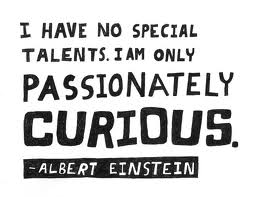By Elaine Cercado
My Mom, who comes from a family of schoolteachers, has always told me, “Experience is the best teacher.” Mom, who has an education degree herself and once taught elementary students, also taught me “the best way to learn is to teach”, and reminded me to “try and try until you succeed.” The stark simplicity of these words has actually impacted me deep.
Experience is the best teacher: My best learnings in life come from the many real-life challenges I’ve faced and experiences I’ve gained – which are mostly on understanding and dealing with the human motivations, values and behavior.
The best way to learn is to teach: I train and mentor adult learners – which are the best ways to learn and grow continuously in life. Try and try until you succeed: I have a sunny disposition and optimistic take on life’s trials – which are rooted from my Mom’s inspiring resiliency.
Mom, a breast cancer survivor, has continuously sprung back from life’s many challenges and radiated her passions quietly and gracefully. For instance, Mom has maintained, even improved, her artistic eye for symmetrical designs and colors that I’ve looked up to her advices about house and fashion designs to this date. Past her prime years, she continued to work as a sales consultant in the boutique store of a global fashion brand, and I witnessed how her customers kept coming back and trusted her advices. As I ponder about how to nurture a few of my own passions, I can’t help but recall my Mom’s wise words.
“Experience is the best teacher”
Through the years, I’ve discovered I’m fascinated by people’s stories – their battles and victories, their thoughts and emotions, their joys and dramas. We collect artworks at home, and the subjects are all people – influenced by my preference and choice. My favorite movies are those that evoke emotions – those movies filled with conversations that my family finds boring. My career articles and subjects are mostly about people development, interactions and achievements.
Yet I didn’t fully know what my passion was – until I actually experienced those moments and more importantly, reflected on them. As a manager for 20 years in the corporate world, I realized that my most treasured moments were those times spent developing people and witnessing them reap success. When a Malaysian sales manager I hired, supervised and promoted personally thanked me for a well-enjoyed travel reward to Canada, I felt overjoyed to be part of her career progress. When an India-based product manager whom I recruited and relocated to Singapore called me last month to update me about the challenges he was facing, I got quite excited and we ended up talking for an hour.
Step 1: Take the time to REFLECT. Oftentimes, we are caught up in our day-to-day that we don’t have time to think through our experiences. How do I feel about this moment? Has it brought me a sense of joy or fulfillment? What specific lessons have I learned? Do I wish to do something about it, maybe improve and take it further? If so, ask for whom, what, how, when and where.

Reflecting is especially challenging in this modern age of constant connectivity and multi-tasking. A white paper of Center for Creative Leadership(CCL) best describes the world we live in today: We think about the people and situations that are in our electronic space, making it hard to focus on the situation we are in at the moment. The brain never really shuts off. Linda Stone, visionary thinker and former Microsoft executive, has described the modern state as continuous partial attention.
“The best way to learn is to teach”
One of the things I learned late in life was to cook our favorite Filipino dishes. I remember the day Mom wrote all her recipes and handed them to me – I was forced by my circumstances as we just relocated to Malaysia and we craved for the familiar home-cooked dishes. To learn to cook, I had to experience the whole process from planning and buying the ingredients to the actual cooking to washing the dishes, to receiving feedback and then to improving the food taste and the whole experience. But what refined my cooking skill was when I talked about it and taught certain recipes to my house helper or to my family members.
As a mentor-coach, I always ask my mentees the question, “What most excites you in or about the world?” Then I ask “If you could teach three things to others about what excites you in the world, what three things would you teach?” Stephen Covey wrote in his book The 8th Habit: Passion comes from the heart and is manifest as optimism, excitement, emotional connection, and determination. Something heartfelt and exciting would jump out naturally. Hence, teaching is the most effective way to discover and nurture our passions.
Step 2: TEACH to spread the excitement. Passion is contagious and uplifting. Teaching drives continuous growth. Passionate people who teach get to inspire, engage and lead others. People want to be around such passionate, inspiring and energizing people.
“Try and try until you succeed”
When I put up my own training and management consulting in Singapore, I faced many challenges and experienced losses and failures. There were many times when I nearly gave up. Then my Mom would remind me of my strengths and achievements, and tell me confidently how she believed in my abilities. She was one of my greatest fans and always succeeded in boosting my morale! She helped me pick up and try again and again.

Having the passion is critical to success, but there are other factors that come into play such as fortitude and mastery. Fortitude is defined as courage in pain or adversity. Synonyms of fortitude include strength, grit, determination, endurance and resilience. Mastery is the end-result when a passion is nurtured with constant practice and fortitude.
My son, who’s passionate about playing basketball started from doing it during Physical Education time in elementary, to joining basketball clinics, to trying out for basketball teams, to competing in high school basketball leagues. There were a few times when he didn’t make it to the basketball team category he wanted, and many times when their team lost. But he would convert those frustrations into positive energy, and play his best again and again.
Step 3: PRACTICE. His coach always reminded my son, who was a competitive swimmer in middle school, that “good practice makes perfect.” His practice drills were so repetitive and time-consuming – yet they became critical to gain confidence to compete in swim meets, and to achieve time records for various swimming strokes.
John Maxwell has said, “A great leader’s courage to fulfill his vision comes from passion, not position.” Regardless of our positions in life, we can certainly attain success if we have the passion to start with. Just add to the recipe: slices of experience, pinches of reflections, spoonful of fortitude and mastery – then teach the recipe to others and practice often – to nurture passion and taste success!

2 Responses
Wow…thanks for the article! It’s really inspirational and you have reminded me that i should not neglect this passion that i have – “to learn is to teach”. Hope i am not too late 😀
Thanks Benny for your comment! It’s never too late to pursue your passion!